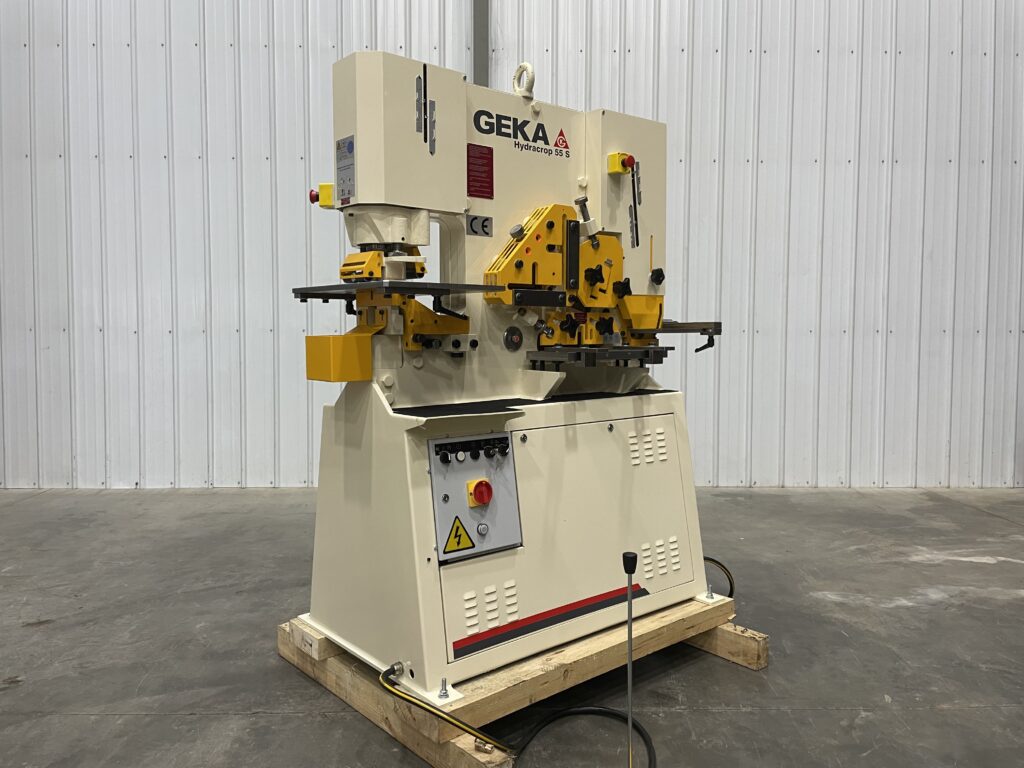Industrial machinery is integral to any factory, providing the equipment to produce goods. From automated assembly lines to specialized machines, industrial machinery helps factories succeed. You can find a variety of industrial machinery in a factory. By understanding the role of each major machine, businesses should be able to work on specific orders and product types with industrial machinery dealers.
Types of Industrial Machinery
CNC Machines
CNC machines automate the production of parts and components. They are computer-controlled machines that use tools to cut, shape, and form materials. Various industries, from aerospace and automotive to medical and consumer products, use them.
These machines have revolutionized manufacturing, allowing for precise, repeatable results with minimal intervention. Users program the machines with instructions on moving, cutting, and shaping the material. This provides high accuracy and repeatability, which helps produce high-quality parts.
CNC machines are versatile and can help to produce a wide range of parts and components. They can also produce 3D shapes like those used in medical implants and prosthetics.
Robotics
Robotics has become popular in recent years. It is a form of automation that uses computer-controlled machines to perform tasks. This type of machinery works in various industries, from manufacturing to healthcare.
The machinery assists in various tasks, such as assembly, sorting, and inspection. Robots can even assist with surgery, diagnose diseases, and deliver medication in some areas of healthcare.
Robotics has advanced with the development of artificial intelligence and machine learning. Evolving technology allows robots to learn from their environment and adapt to new tasks. This makes them more efficient and cost-effective than some traditional methods of production.
Considerations When Choosing Industrial Machinery
Space Requirements
When choosing industrial machinery, consider your facility’s space requirements. The size and shape of the machinery must fit the available space in the factory or warehouse. The machinery should also fit through the doorways of pre-existing buildings.
Some pieces of machinery should be able to move around the factory or warehouse, depending on their role in production. The machinery must also fit into the existing infrastructure. This includes the power and data connections, ventilation, and other systems. If the machinery is incompatible with the existing infrastructure, it may require modification.
Budget
Choose machinery within your budget from affordable industrial machinery dealers. Consider the cost of maintenance and repairs when budgeting.
Check the cost of energy the machinery uses, as well as the cost of training for staff to use the machinery.
Maintenance
Proper maintenance of industrial machinery helps it continue to perform well. Some machines may need regular maintenance, such as lubrication, cleaning, and inspection. Others need more complex maintenance, such as component replacement or specialized repairs.
Consider the availability of spare parts and regular service for the machine. If you do not service the device or if spare parts are not available, it may be challenging to keep it running.
Inspect and service the machine for safety. Consider the machine’s safety features. These could include emergency stop buttons and guards that keep operators safe.
Contact Reliable Industrial Machinery Dealers
Consider the type of industrial machinery that your factory needs for quality production. This will help you decide what will help your factory reach its full potential. Choose qualified industrial machinery dealers to help your factory maximize profits.



